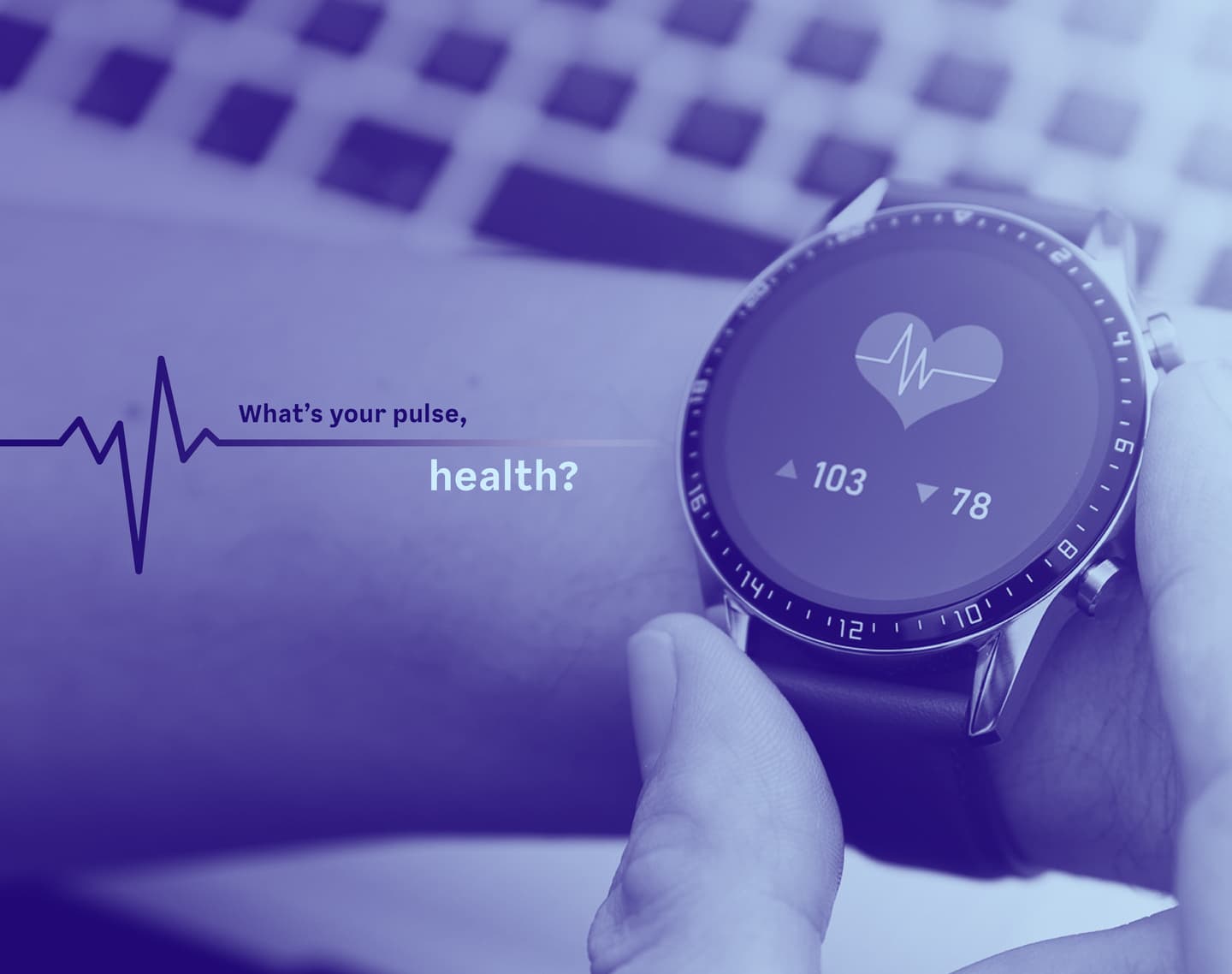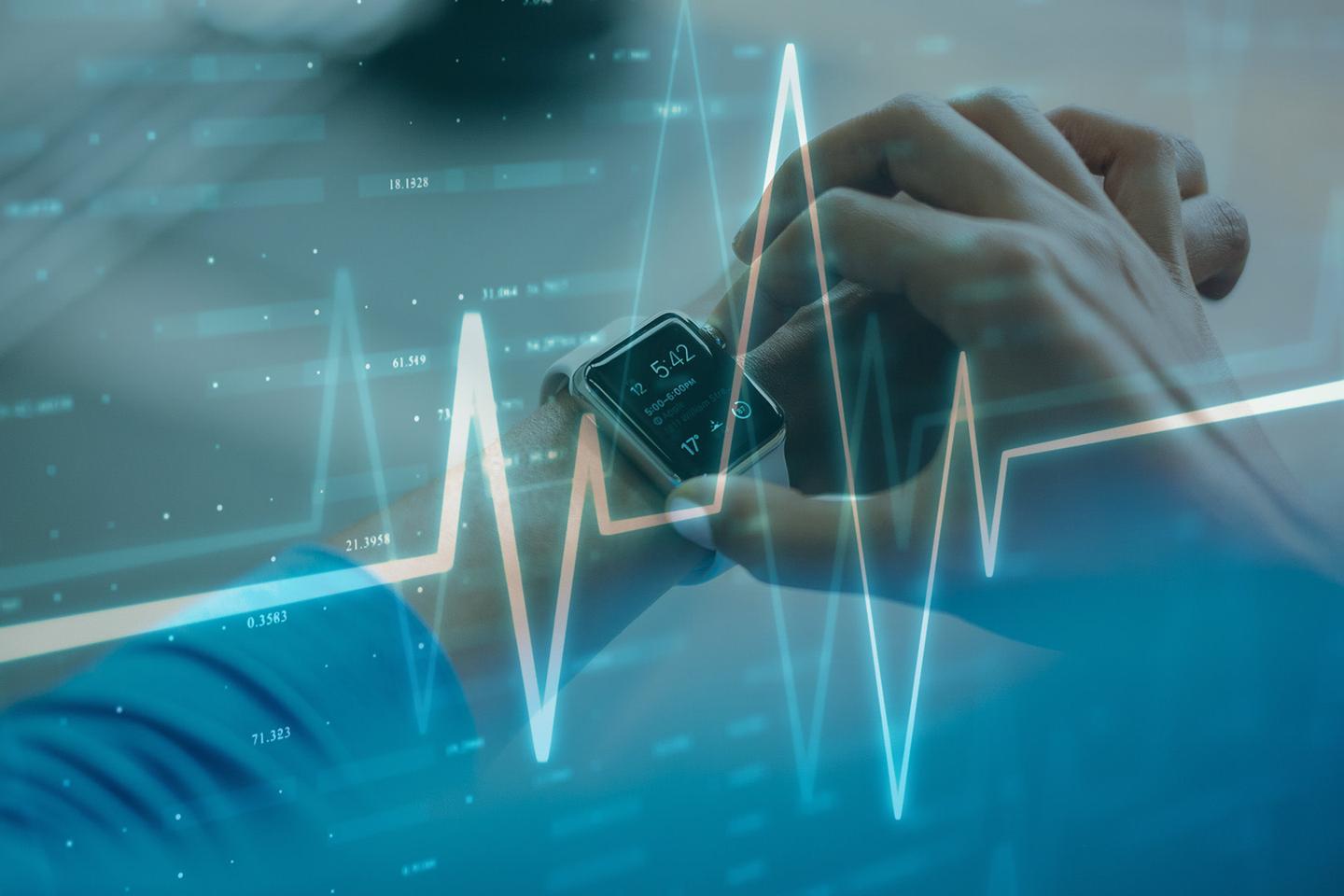Interview with Friedrich Lämmel, Co-Founder Thryve
Friedrich Lämmel, Co-founder of the Berlin-based startup mHealth Pioneers behind the brand Thryve, is convinced that the global pandemic has set the course for digital health transformation - also in Germany. It's time for health players to execute or even refine their digital health strategy. Learn more about his views on opportunities, partnerships, and customer-centricity in the healthcare market.

The healthcare sector is facing the need for a seismic shift: Where do you see the biggest opportunities?
The seismic shift in healthcare is enabled by digitalization – and this opens up opportunities around everything that eases the patient journey and improves outcome. First of all, accessing the right health assistance is becoming easier. There is no need for me to go to the doctor’s office and wait for hours in a room full of other sick people when I have a mild flu – talking to doctors remotely is the new normal.
But digital care can do more than just treating little aches and pains: We see a lot of specialized services offering a fully digital care plan for chronic diseases. Users consult specialists remotely and are guided through recovery processes with digital applications.
In parallel, the focus of care is shifting to prevention – according to recent McKinsey findings, 70% of efficiency gains in healthcare will be made by acting before a critical health condition occurs. This opens up further opportunities around helping users to develop healthy habits and detecting individual risks early on.
All this is enabled by a previously unavailable transparency on people’s daily health. Until now, doctors had to measure health and assess an individual’s health risks - they created a quite costly one-time snapshot. Our everyday smart consumer devices are changing this for good: Medical devices like glucose meters and ECGs become connected, wearables offer insights on lifestyle and vital data and smartphone data offer a multitude of ways to track health- related data.
The combination of all those data points creates a truly holistic picture of one's health status - information sought by all stakeholders in healthcare and urgently needed for truly proactive healthcare.
Remember how clumsy the first laptops and phones were when they got released 20 years ago? Leveraging new technology and the digital world disrupted those industries heavily – thinking user-centric became the new normal. The same is happening in healthcare right now.
Does that also mean that health players need to transform internal operations in order to become future-resilient?
In line with all other industries, modern healthcare should think and act truly user-centric. Users expect the highest level of convenience and intuitive service - digital players like Amazon trained consumers to think like this. However, only few organizations follow and execute this mantra.
But what does that actually mean? Healthcare needs to avoid mistakes other industries did. Simply reproducing existing processes in digital environments won’t satisfy consumers. All processes need to be rethought and adjusted for a “digital first” world. Yes, this is stressful and demands a real mindset change in the organizations of traditional players. However, providing the greatest added value for individual users will also open up new options to increase revenue.
The road ahead is clear and all verticals of the healthcare industry will be affected: Health insurances need to transition from payor to partner and strengthen their prevention efforts. MedTech and Pharma need to provide services, not just products and pills, to improve the value they deliver. And hospitals and doctors need to connect to users outside their premise, to ensure the most efficient utilization of their infrastructure
What role do data security and privacy concerns play in digital health services?
This is an incredibly important topic. Health information is highly sensitive and needs special protection to prevent misuse and discrimination. The industry already has a strong ecosystem of specialists and service providers for data security and privacy. When designing new processes and products, privacy aspects need to be incorporated early by service providers to help to avoid major obstacles.
Which other technologies do you see as the biggest promises in the health sector and how can they improve efficiency?
Sensors. Each and every one of us collects plenty of data which is valuable for health care today. Whether it's with a smartphone, a wearable such as the Apple Watch, or with a networked blood glucose meter. It’s a push in technology, that is coming from all directions. Consumer devices manufacturers incorporate health-sensors, classic medical devices manufacturers add connectivity and research extracts new health-data from existing sensors. This continuous data is all but the decisive building block for tomorrow’s healthcare - a truly holistic view on people’s health.
Health data from sensors allows to treat people as an individual, to understand their circadian rhythm, to identify changes in health status quickly, to take proactive measures and ultimately, to measure outcome objectively.
Looking at the changes on the health market - how do you evaluate the importance of partnerships, for example between Start-Ups and traditional corporates?
Healthcare is one of the most regulated industries in the world. You can’t just ignore all the existing rules and try to disrupt everything. The industry has traditionally favored strong (international) partnerships. The digital health sector works the same way. A great example is how telemedicine providers partnered early with local doctors, as well as health insurances to gain traction among patients.
However, partnerships only work as equals - we frequently hear from colleagues that the old players often decorate themselves with start-up cooperation’s, while in fact the projects are never implemented. This blocks the much-needed transition towards a more accessible and individually effective health service.
What is needed from the legal authorities and the government to support these opportunities?
The legal hurdles for the use of reimbursement of digital solutions are still quite high. But not everything is bad: Germany just introduced new legislation, that provides universal reimbursement digital applications that fulfill a defined set of criteria. Providers can market their solutions early as part of the primary health care, but need to provide continuous transparency on outcomes to reduce the risk for the payor. This is a prime example of the way, modern healthcare should work – providing the best service possible, while offering an easy entry for innovation that benefits patients and society. This is a first step towards a value-based healthcare system.
Although the reimbursement got much easier in Germany, it is not in most other countries. We need a set of standards for digital health that are recognized across borders – starting with a European approach towards digital health.
With every new medicine or medical device it is also key to get the acceptance of your customer. How do you think digital can help to increase and speed up acceptance of new products or treatments?
Remember how clumsy the first laptops and phones were when they got released 20 years ago? How you chose a bank with the closest geographic location to your house? Leveraging new technology and the digital world disrupted those industries heavily – thinking user-centric became the new normal. The same is happening in healthcare right now.
Although the Apple Watch is not a medical device in the traditional sense, it shows perfectly how you can create acceptancy for a continuous heart rate monitoring with integrated heart arrythmia detection. The health features are marketed as lifestyle enhancements, helping individuals to raise their well-being.
The focus of new digital health products needs to lie on empowering consumers to proactively maintain their health, rather than acting when the pain is big and it’s too late for preventive measures.
Looking into the future, if you had to name three key aspects, what will it take to really transform Germany into a digital health nation?
If it was three things, it would be:
- An easy availability of digital devices and health monitoring technology
- Strong political support for unconventional solutions, enabling a universal reimbursement for digital health solutions
- A seismic shift in society inducing urgency to act for every healthcare player
With Covid-19, all these factors came together in the past months – everything needed just happened. Whoever still didn’t start to execute or even refine his digital health strategy, is probably too late.
If you want to learn more about Friedrich's view on the market - check out our latest webinar discussion on "Anticipatory tech - preventive health care leading the way".
About Friedrich Lämmel

With experience in IT project management and organizations of both, the public and private sector, Friedrich Lämmel is a seasoned founder driving product and market development based on agile principles and customer value. Together with Paul Burggraf and John Trimpop, he founded the Berlin based company mHealth Pioneers GmbH, the Fraunhofer SpinOff that is behind the brand Thryve. Since then, Thryve has become the trusted technology provider for leading healthcare services globally, that even drew the German Government's Robert Koch-Institut (Centre for disease control) to rely on them for their 500.000+ users covid19 monitoring app.
About Thryve
Founded in 2017 in Berlin, Thryve acts as an interface to simplify access to personal health data from fitness wristbands, blood pressure and blood glucose monitors for corporate customers and scientists. Thryve’s technology enables access to continuous biomarkers of lifestyle and bodily parameters to help digital therapies, pharmaceutical companies and hospitals to improve indication understanding, individualize treatments and create reliable, long-term outcome evidence.
 Anastasia TolmatschInnovation & Business Development Manager, Germany
Anastasia TolmatschInnovation & Business Development Manager, Germany

